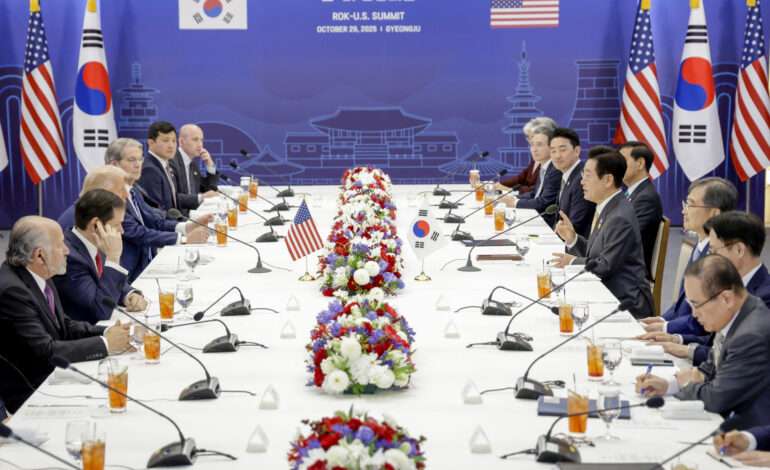
South Korea, US sign MoU to implement $350 billion investment pledge under new tariff-cut deal
South Korea and the United States have formally signed a memorandum of understanding (MoU) to operationalize Seoul’s massive $350 billion investment pledge, a commitment made in exchange for reduced U.S. tariffs under a recently concluded trade arrangement. The agreement was electronically signed on Friday by South Korean Industry Minister Kim Jung-kwan and U.S. Commerce Secretary Howard Lutnick, according to South Korea’s Ministry of Trade, Industry and Resources.
The MoU follows the Oct. 29 agreement in which the two sides finalized the structure of South Korea’s multibillion-dollar investment pledge. Under the terms, Seoul will provide $200 billion in cash installments, capped at $20 billion annually, and an additional $150 billion dedicated to bilateral cooperation in shipbuilding — a key industry for both nations.
In return, Washington has lowered reciprocal tariffs on South Korean imports. As of Aug. 7, U.S. tariffs on Korean goods were reduced from 25 percent to 15 percent, with additional cuts planned for automobiles and lumber. Korean pharmaceutical products will also be subject to tariff rates capped at 15 percent. Meanwhile, semiconductors — a critical export for Korea — will receive tariff treatment “no less favorable” than that applied to competitors such as Taiwan, Kim said.
The MoU outlines a detailed roadmap for selecting and executing projects funded by the $200 billion cash component. All investment decisions must be finalized before the end of President Donald Trump’s term in January 2029. Funds will be directed toward “commercially reasonable” projects in advanced sectors listed in a joint U.S.–Korea fact sheet, including semiconductors, energy, pharmaceuticals, critical minerals, artificial intelligence, and quantum computing.
To manage the collaboration, the two countries will establish a Consultation Committee, led by Korea’s industry minister, and an Investment Committee, chaired by the U.S. commerce secretary. A U.S.-based special purpose vehicle (SPV) will oversee overall project management, while separate SPVs will handle individual projects — each ideally staffed with a Korean project manager.
The agreement also requires the United States to give priority to South Korean companies when choosing vendors and suppliers for jointly funded projects.
In terms of profit-sharing, the MoU specifies a two-tier structure: profits will initially be split 50-50 until both countries recover the “deemed allocation amount.” After that threshold, 90 percent of profits will go to the United States and 10 percent to South Korea.